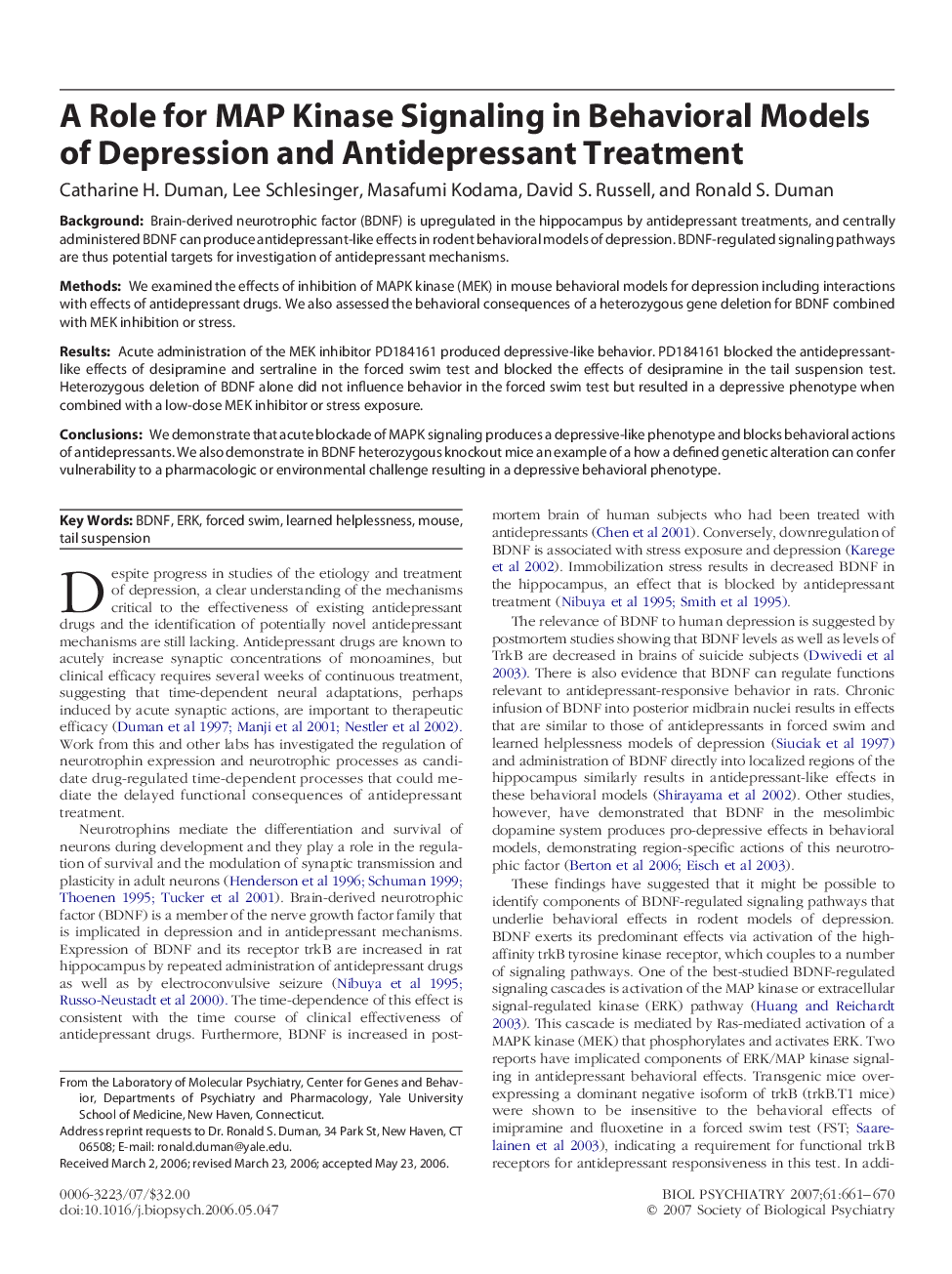| Article ID | Journal | Published Year | Pages | File Type |
|---|---|---|---|---|
| 4181093 | Biological Psychiatry | 2007 | 10 Pages |
BackgroundBrain-derived neurotrophic factor (BDNF) is upregulated in the hippocampus by antidepressant treatments, and centrally administered BDNF can produce antidepressant-like effects in rodent behavioral models of depression. BDNF-regulated signaling pathways are thus potential targets for investigation of antidepressant mechanisms.MethodsWe examined the effects of inhibition of MAPK kinase (MEK) in mouse behavioral models for depression including interactions with effects of antidepressant drugs. We also assessed the behavioral consequences of a heterozygous gene deletion for BDNF combined with MEK inhibition or stress.ResultsAcute administration of the MEK inhibitor PD184161 produced depressive-like behavior. PD184161 blocked the antidepressant-like effects of desipramine and sertraline in the forced swim test and blocked the effects of desipramine in the tail suspension test. Heterozygous deletion of BDNF alone did not influence behavior in the forced swim test but resulted in a depressive phenotype when combined with a low-dose MEK inhibitor or stress exposure.ConclusionsWe demonstrate that acute blockade of MAPK signaling produces a depressive-like phenotype and blocks behavioral actions of antidepressants. We also demonstrate in BDNF heterozygous knockout mice an example of a how a defined genetic alteration can confer vulnerability to a pharmacologic or environmental challenge resulting in a depressive behavioral phenotype.
